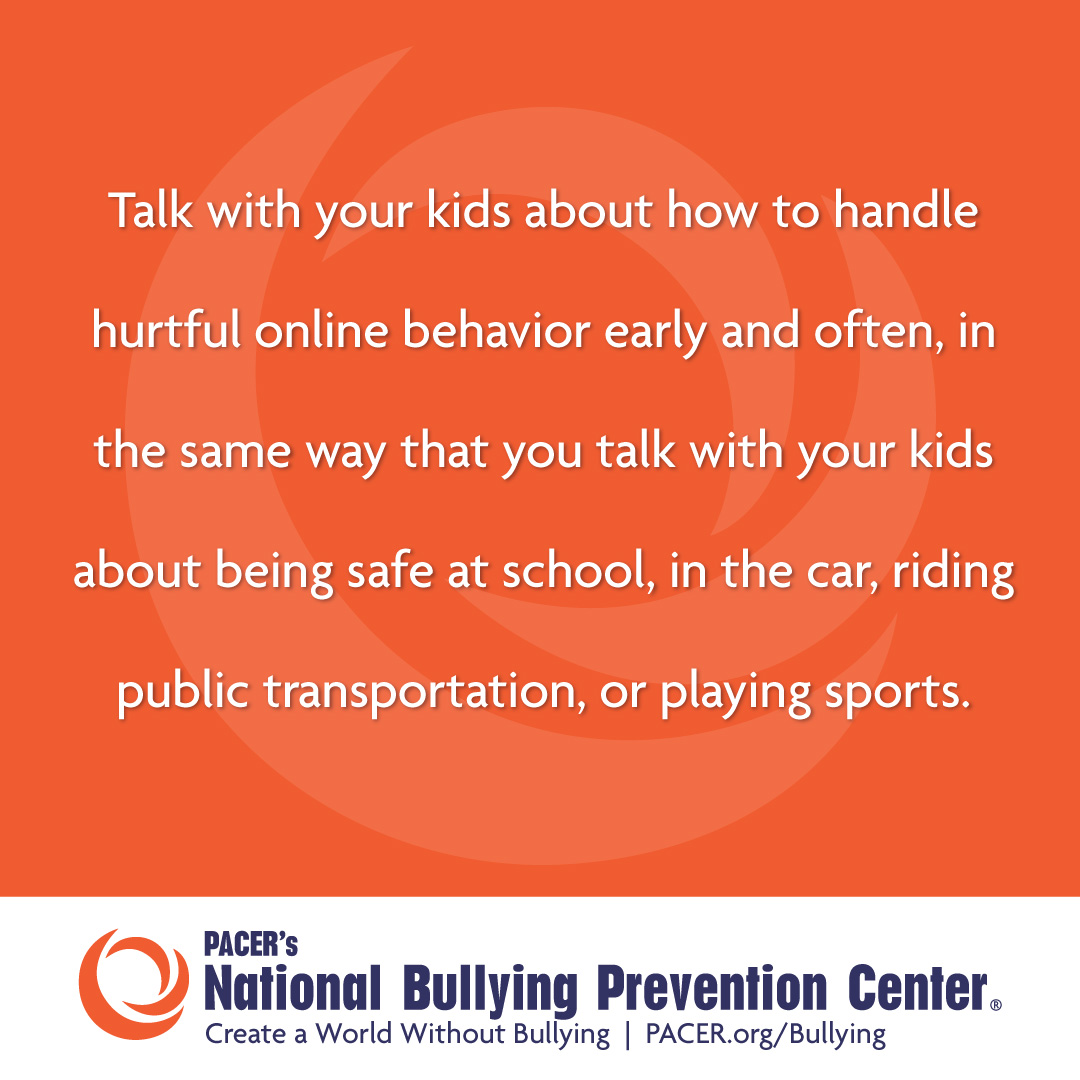Talking to your child about bullying is crucial. It helps them feel safe and supported.
Bullying can have a lasting impact on a child’s well-being. As parents, it’s vital to start this conversation early. Kids might not always speak up about their struggles. They might feel scared or embarrassed. By discussing bullying openly, you show your child they can trust you.
This builds a strong foundation of communication. They need to know they are not alone. In this guide, we will explore simple steps to talk to your child about bullying. These tips will help you understand their feelings and offer the right support. Let’s dive in and ensure your child feels safe and heard.
Recognizing Bullying Signs
Help your child understand bullying by discussing its signs. Encourage open communication and reassure them they can always talk to you. Recognizing bullying early can prevent lasting harm.
As a parent, it’s crucial to recognize the signs that your child might be experiencing bullying. Early detection can prevent long-term emotional and physical damage. Understanding these signs will help you take prompt action and provide the needed support for your child.
Physical Indicators
Physical signs of bullying can be the most visible and easiest to spot. Look for unexplained bruises, cuts, or scratches. These might be signs your child is being physically harmed.
You might also notice that your child’s belongings are frequently damaged or missing. Torn clothes, broken toys, or a mysteriously lost backpack could indicate bullying.
Pay attention to frequent complaints of headaches or stomach aches. These can be symptoms of stress or fear of going to school.
Emotional Changes
Changes in your child’s emotions can also signal bullying. If your usually happy child becomes withdrawn or anxious, it’s time to dig deeper.
Look out for sudden mood swings or increased irritability. Bullying can make children feel helpless and frustrated, which might show up as anger at home.
A drop in self-esteem is another red flag. If your child starts to doubt their worth or abilities, it could be a result of negative experiences at school.
Have you noticed any of these signs in your child? Trust your instincts and have an open conversation with them. Your attention and support can make a world of difference.

Credit: oasmiles.com
Starting The Conversation
Open the conversation about bullying with your child calmly. Ask open-ended questions to understand their experiences. Listen actively and show support.
Starting a conversation with your child about bullying can seem daunting, but it is a crucial step in helping them feel safe and understood. The key is to approach the topic with sensitivity and openness. Creating an environment where your child feels comfortable sharing their experiences is essential.
Choosing The Right Moment
Timing is everything when it comes to discussing serious topics like bullying. Choose a moment when your child feels relaxed and unhurried. This could be during a quiet dinner, a casual walk, or before bedtime.
Avoid bringing up the topic when your child is already stressed or distracted. A calm atmosphere encourages openness. You might say, “I noticed you seemed a bit quiet after school today. Is there something on your mind?”
Using Age-appropriate Language
Tailor your language to fit your child’s age and comprehension level. For younger children, use simple words and concrete examples. You could say, “Sometimes kids say mean things to each other. Has something like that happened to you?”
With older children, you can delve deeper into the nuances of bullying. Discuss the different forms it can take, such as physical, verbal, or online harassment. Ask them, “Have you or any of your friends experienced someone being mean or hurtful at school?”
By choosing the right moment and using age-appropriate language, you can make this difficult conversation a little easier for both you and your child. Have you ever found yourself at a loss for words when trying to talk about tough topics? How did you handle it?
Providing Support And Solutions
Providing support and solutions to your child about bullying is crucial. It helps them feel secure and loved. By taking the right steps, you can empower your child. This will enable them to handle bullying confidently. Here, we will discuss ways to build their confidence and seek professional help.
Building Confidence
Building your child’s confidence is key. Start by listening to their experiences. Show empathy and understanding. Encourage them to express their feelings. This will make them feel heard and valued. Teach them to stand tall and make eye contact. This body language can deter bullies. Practice with them at home. Role-playing can help them respond to bullies assertively. Praise their strengths and achievements. This boosts their self-esteem. A confident child is less likely to be a target.
Seeking Professional Help
If bullying persists, seeking professional help is important. Consider talking to a school counselor. They have experience handling such issues. They can provide strategies and resources. Therapists can also assist your child in coping with stress. They offer a safe space for your child to talk. Support groups are another option. They can connect your child with peers who understand their struggles. Professional help can make a big difference. It ensures your child gets the support they need.

Credit: www.pacer.org

Credit: mamadocpediatrics.com
Frequently Asked Questions
What Do You Say To A Child Who Is Being Bullied?
Tell the child to stay calm and confident. Encourage them to speak to a trusted adult. Remind them bullying is never their fault. Teach them to stay safe and avoid the bully when possible.
How To Teach Your Kids To Deal With Bullies?
Teach kids to stay confident, assertive, and calm. Encourage open communication about bullying. Role-play responses with them. Involve school authorities if needed. Promote empathy and kindness.
How To Punish Your Child For Bullying?
Address the behavior, not the child. Explain why bullying is wrong. Implement age-appropriate consequences. Encourage empathy through role-playing. Seek professional help if needed.
How Do I Shut Down A Bully?
Stand firm, stay calm, and assertively tell the bully to stop. Seek support from friends or authorities.
Conclusion
Talking to your child about bullying is crucial. It helps them feel safe. Listen to their concerns. Offer support and guidance. Encourage open communication. Teach empathy and kindness. This builds their confidence. Seek help if needed. Schools and professionals can assist.
Your child is not alone. Together, you can overcome bullying.

